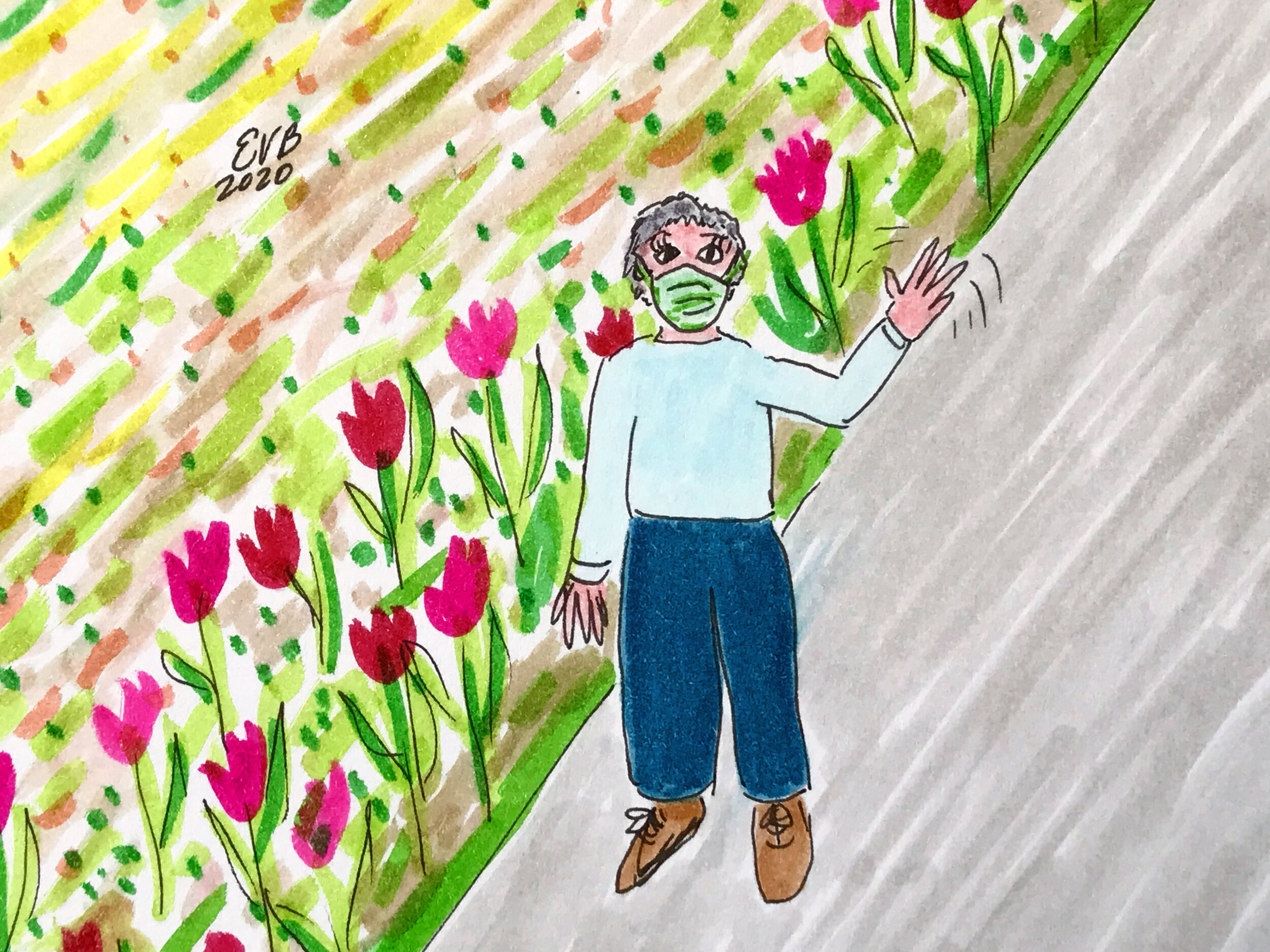An Epidemic of Virus Creates a New Retreat
Back in the PV (pre-virus) days, retreats meant leaving the world behind and using the cloistered context of wherever the retreat was being held to support investigating the habits of one’s own mind in hopes of discerning those mental habits that created suffering and those that did not. I would always try, before leaving on retreat, to take care of outstanding complications in my family or with my work so that I would not have my efforts to concentrate on retreat be interrupted by getting messages from home. I recall coming to value the phrase, “tranquil and alert,” as the mind state I hoped to cultivate. It was that state of heighted awareness, steadied by concentration, that most supported the arising of liberating insight. I found that to be true, and I am grateful for that kind of retreat experience.
And, here I am sequestered at home with my husband. We don’t have the noise or bustle of living in a the middle of a big city, but there are plenty of phone calls and zoom calls and emails and Netflix and the New York Times arrives daily in our driveway before dawn. I can even take a walk around the block every day. I wear a mask and my neighbors, the few that are out, are also wearing masks. We wave at each other as we cross the street back and forth to avoid being too close. And still, the going out to walk is a higher alert circumstance that being at home. Everything is higher alert than usual.
I am discovering that my mind is behaving like it does at a retreat center, offering up surprisingly refreshing insights that I am confident are changing my mind in a wholesome way, habituating it to kindness, which is always my motivation for teaching and practicing mindfulness. My mind is not tranquil. But it is alert.
Here is an example:
I am walking along and notice a person walking across the street who, at first glance, looks like a cousin of mine. As I think of that cousin, I am surprised to notice that instead of the usual “Ugh! What an unpleasant person X is!,” I think, “X had so many struggles in his life.” My mind, on its own, had replaced the habitual rap sheet of offenses and slights saved up in my opinion storehouse with another, more generous opinion. I noticed the pleasure I felt not to have added extra tension to an already tense life.
Here’s another example:
I am sitting at my computer writing and suddenly hear the sound of a power leaf-blower being started up in the yard of the neighbor’s house. I have a litany of well-rehearsed responses starting from, “The neighboring towns have leaf-blower ordinances! I should start a petition!” and ending with, “At least not every week, maybe every other week!” Instead, I am startled to hear my mind think, “Oh good! He still has a job. I’m glad Sherry still employs him.” And, I was pleased that once again, by itself, my mind had changed.
Here is what I think is happening:
My mind is not tranquil, but it is definitely alert. I am hoping to be able to see clearly what is happening and what response on my part will not create suffering for me or for anyone else. My watchword phrase these days is, “May I be free of negativity.” I describe my mindfulness practice as recognizing imperative in the mind and attempting, gently, to lessen it by holding things in perspective, by having a more expansive view. The expansive view moves past my concerns to everyone’s concerns.
I hope this period of worldwide awareness, wherever we are, of the radical precariousness of our lives and the preciousness of our lives will startle people all over the globe into a radical transformation of outlook from me, my story, my opinions and needs to everyone’s story and everyone needs. There are no villains or victims in this story. There is only a shared need to vanquish this virus, to heal from the loses it creates, and then to heal the planet, not just from coronavirus but from enmity.
